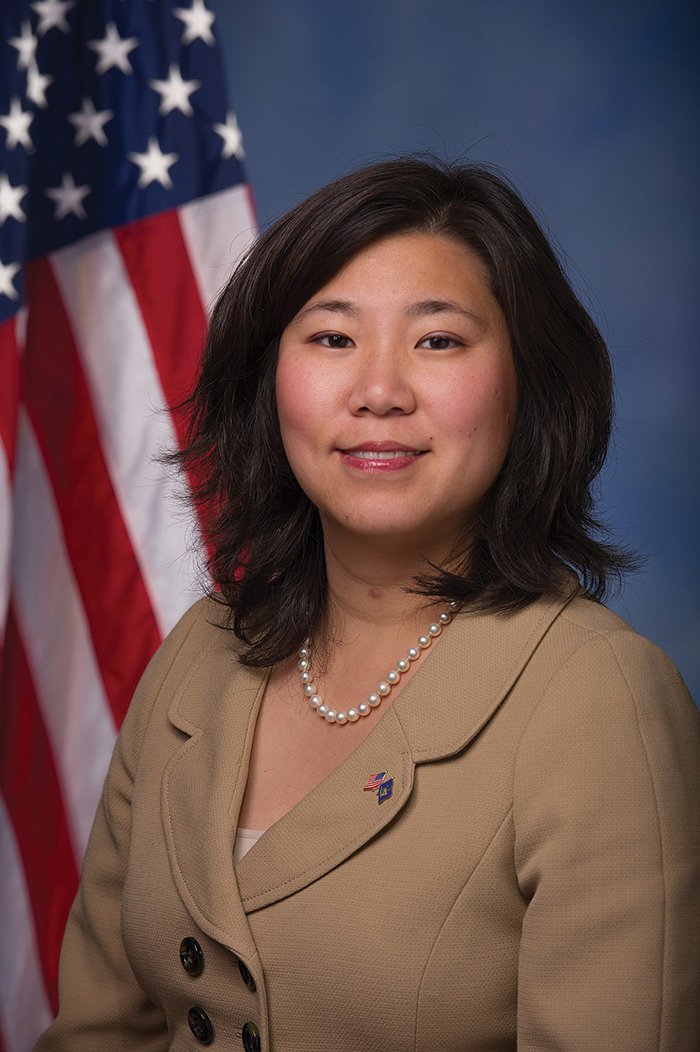File Photo
“Housing instability and homelessness is debilitating and demeaning,” Rep. Meng said.“This is completely unacceptable and must change.”
By Forum Staff
U.S. Reps. Grace Meng (D-Flushing) and PramilaJayapal (D-Wash.) on Thursday led lawmakers in introducing the Housing is a Human Right Act, transformative legislation to authorize more than $300 billion for housing infrastructure while reducing homelessness across America.
According to Meng and Jayapal, the urgent proposal invests more than $200 billion in necessary affordable housing and support services. Additionally, the bill puts forward $27 billion a year for homelessness services, provides $100 million a year for community-driven alternatives to criminalization of those experiencing homelessness, and makes targeted investments in communities at disproportionate risk of homelessness.
“Housing is a human right, and everybody in our country deserves a safe and affordable place to live,” Meng said. “Unfortunately, too many Americans are forced to choose between having a roof over their head and affording basic necessities. And the COVID-19 pandemic has only exacerbated an already dire housing crisis in New York and across the nation, forcing more people into poverty. Housing instability and homelessness is debilitating and demeaning. This is completely unacceptable and must change. That is why I am proud to join Congresswoman Jayapal in introducing the Housing is a Human Right Act, which makes long overdue, monumental investments in housing infrastructure and homelessness services. This gives communities like mine the resources we need to guarantee access to affordable housing, as well as the tools needed to tackle homelessness — while upholding the dignity of each person. It’s time to make our communities livable for ALL people.”
Lacking housing often leads to penalization, interactions with law enforcement, and entering the justice system. It also makes it difficult to seek or hold a job, obtain assistance with accessing resources, find safe housing, and receive regular care for health needs. In fact, the harsh conditions of unsheltered homelessness leads to a mortality rate that is four to nine times higher than that of the general public. Additionally, some groups are disproportionately likely to experience homelessness — including communities of color, LGBTQ people, people with disabilities, seniors, veterans, former foster youth, and justice system-involved people. While Black communities make up 13 percent of the general population, they comprise 40 percent of people experiencing homelessness and half of all homeless families.
The Housing is a Human Right Act will address this reality by:
- Investing up to $100 billion for McKinney-Vento Emergency Solutions Grants and $100 billion for Continuum of Care grants
- Creating a new grant program to invest in humane infrastructure; providing municipalities with $6 billion a year through a flexible program that will allow them to address their most urgent infrastructure needs related to housing and homelessness
- Incentivizing local investments in humane, evidence-based models to support people experiencing homelessness, including alternatives to criminalization and penalization
- Providing $10 billion for FEMA emergency food and shelter grants while improving grants to better reflect high rates of homelessness and income inequality
- Authorizing $100 million in grants to public libraries to provide assistance and tailored supports to persons experiencing homelessness

